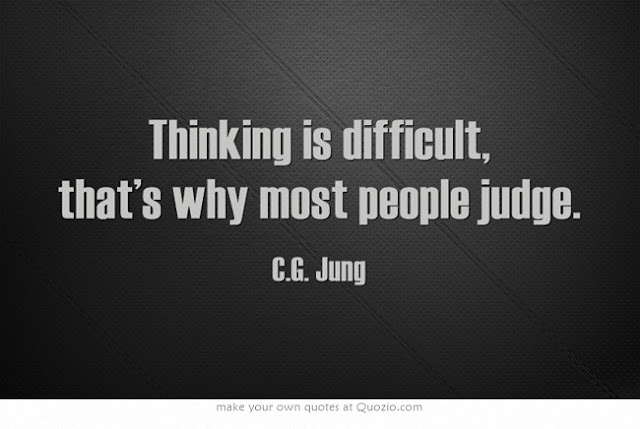While some of my views my had shifted a bit, the core remained the same. I continued to firmly stand against Saleh for the same reasons I joined the revolution in 2011 (and was outspoken about it long before). My secular views contradicted the conservative Houthi thought, and my anti-imperialist views made me staunchly anti-intervention by any side. Did I feel the need to reiterate this "stance" every single time I tweeted? No. Did people pressure me to do that? Yes, because, apparently if you don’t, baseless accusations hail on you.
The war has awakened buried prejudices. As psychologists note, in order to make sense of the world around us, we tend to sort information into mental categories. Unfortunately, if we are not careful, our inner stereotypes may emerge in the process. This has been very much visible during this war. The prejudices that were buried deep down came to the surface and blinded even the closest of friends and family.
Based on my discussions with some people, many of them don’t even realize they are being discriminatory. So, I thought I would highlight some examples of what prejudice in this context could look like:
The war has awakened buried prejudices. As psychologists note, in order to make sense of the world around us, we tend to sort information into mental categories. Unfortunately, if we are not careful, our inner stereotypes may emerge in the process. This has been very much visible during this war. The prejudices that were buried deep down came to the surface and blinded even the closest of friends and family.
Based on my discussions with some people, many of them don’t even realize they are being discriminatory. So, I thought I would highlight some examples of what prejudice in this context could look like:
- The assumption that someone takes a certain position or formulates a certain opinion not based on their own beliefs, research, knowledge etc, but based on their city of birth, region, school of thought (sect), family name or lineage. These of course shape a person's upbringing, especially people who do not reflect on their own priviledge, but to assume that all people with the same background think in exactly the same way is discriminatory.
- A statement such as “resistance fighters in the South are all ISIS in disguise” is generalizing an entire population. The Resistance in the South is a mix of different groups with different ideologies. Some may be linked to AQAP, some to Hadi, and majority to neither, simply fighting against the occupation of the South.
- Believing that your lineage somehow makes you above everyone else! How are you still stuck on this ancient idea?
- Thinking that all Zaydis or Hashemites are "Houthis in disguise," or using the terms interchangeably as if they are synonyms. Not all Zaydis or Hashemites are pro-Houthi, and not all pro-Houthis are Zaydi.
- “I would rather an Arab hegemony than an Iranian one. Persians are just different than us!” Some Arab nationalists have gone too extreme! Can we just please say no to hegemony and intervention from ALL sides! We don’t have to pick either/or.
- When you deliberately single out one person from an entire group and ask, “What do YOU think of so and so crime? Or why haven’t you condemned it?” We see this a lot in the West, where Muslims are constantly asked to justify their position, and many have now refused to so, or do it sarcastically under #MuslimApologies. Now I see the same thing happening at a local scale in Yemen. Some people are constantly singled out and asked to “explain their position” on certain issues. When they refuse on matter of principle and ask, “Why should I?” the response is often “as a Hashemite and/or as a Zaydi, you must explain your stance publically or condemn it.” This is the same line given to many, even those who have never identified themselves as such. Should my grandmother apologize for AQAP simply because she’s a Shafi’i? Of course not! In the same manner Muslims don’t have to apologize for every “terrorist” activity, Yemenis don't either.
- “Somali Mercenaries are being sent to Yemen to fight, like in Libya. These black people are so blood thirsty!” Really? Really? WTF! Where can I start!
My fear is that prejudice has become normalized even within activist and academic circles. When disagreements emerge, or when people stray away from the dominant war narrative, the response is not to discuss political differences but rather to judge and retreat to discriminatory and prejudicial reasoning.
Sadly, for the first time in my life, I’ve felt I needed to “filter” my friends because I no longer have the patience for discrimination and bullying. The level of narrow-mindedness has shocked me to a point where I’ve felt so disconnected from the community of activists I once held so dear. Conforming to these new disturbing social norms means more activists will adopt such behaviors unless we begin to question this publically. The finger pointing has closed a door on dialogue, and made it impossible to work together. Let us change that.

See War Rant - Part 1: The War Narrative and the Death of Philosophy
Sadly, for the first time in my life, I’ve felt I needed to “filter” my friends because I no longer have the patience for discrimination and bullying. The level of narrow-mindedness has shocked me to a point where I’ve felt so disconnected from the community of activists I once held so dear. Conforming to these new disturbing social norms means more activists will adopt such behaviors unless we begin to question this publically. The finger pointing has closed a door on dialogue, and made it impossible to work together. Let us change that.

See War Rant - Part 1: The War Narrative and the Death of Philosophy